Research
My first book, Falling Short: The Bildungsroman and the Crisis of Self-Fashioning (University of Virginia Press, 2020), was an attempt to rethink the history of the Bildungsroman by focusing on the underrated role of failure in the work of the genre's major practitioners, including Charles Dickens, Honoré de Balzac, Charlotte Brontë, Henry James, James Joyce, and Marcel Proust. I have also written about other Victorian novelists – most notably George Eliot – and about a host of more contemporary writers, including Christa Wolf, Danilo Kiš, Milan Kundera, Christopher Okigbo, and Caryl Phillips. I am the editor of several volumes, including The Politics of Tragedy (2014, in Serbian), The Limits of Cosmopolitanism (Routledge, 2019), which I co-edited with my colleague Philip Tsang, and, most recently, a special issue of Genre on Aestheticism Now. I have just completed the manuscript of my new book on aestheticism's afterlives in twentieth-century literature. You can learn more about my major publications below.
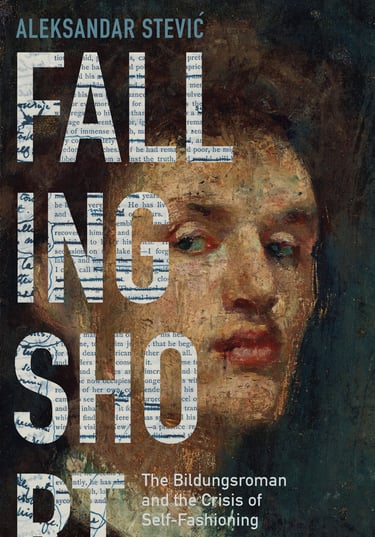

Falling Short: The Bildungsroman and the Crisis of Self Fashioning
Falling Short outlines a revisionist history of the modern Bildungsroman. While the Bildungsroman is routinely described as a bourgeois literary form whose crisis roughly corresponds to the rise of literary modernism, my book argues for a vision of the Bildungsroman as an inherently dysfunctional genre. Focusing primarily on the novels of Charles Dickens, Honoré de Balzac, Charlotte Brontë, Henry James, Samuel Butler, James Joyce, and Marcel Proust, I reveal not only a crisis of character development, but also a crisis of plotting and narrative structure. This crisis, my study further argues through a detailed inquiry into the Bildungsroman’s social and intellectual contexts, reveals European modernity’s perpetual failure to envision successful socialization.
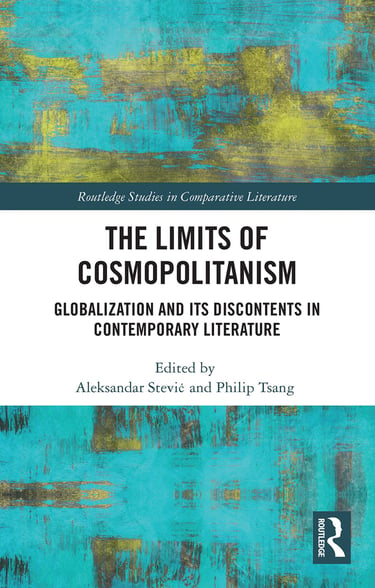

Becoming Christopher Okigbo: Aestheticism, Ideology, History
Genre 58.2 (2025)
University of Virginia Press, 2020
This special issue of Genre explores the contemporary relevance of aestheticism by reexamining the key figures of the Aesthetic Movement, the subsequent appropriations of their doctrines, and the broader issues related to the status of both aestheticism and the aesthetic in contemporary literary studies. Essays by Joseph Bristow, Dustin Friedman, Sarah Parker, Matthew Potolsky, Aleksandar Stevic, David Weir, and Giles Whiteley.
The issue is available from Duke University Press.
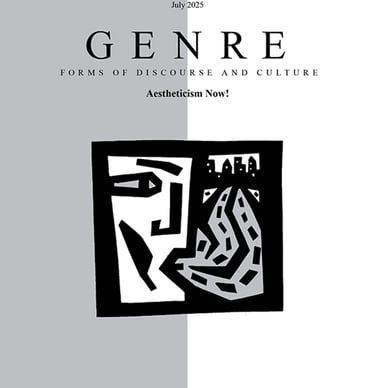

The Rules of Misreading: Pierre Bourdieu and the Rhetoric of Antiaestheticism
ELH (Forthcoming)
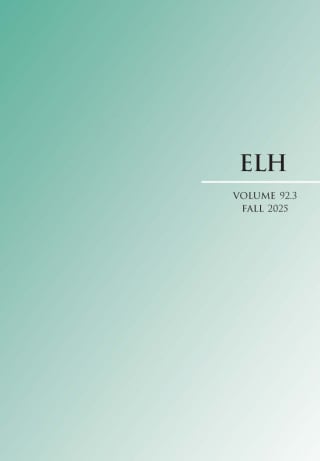

The Homological Imagination: Toward a Critical History of Political Formalism
Drawing on Ulrich Beck’s assertion that the human condition has become inescapably cosmopolitan, this collection examines the ways in which the literary production of the twentieth and twenty first centuries interrogates the diverse and often contradictory forms of in-betweenness offered by our present cosmopolitan reality. Essays by a diverse group of scholars from the US, Europe, and Asia address both Anglophone and non-Anglophone contexts, including British, American, Caribbean, Arabic, and Francophone African novels, as well as Pakistani and Eastern European diasporic writings.
The book is available on Amazon and an extended preview is available from Routledge.
Aestheticism Now! ed. Aleksandar Stević
The Limits of Cosmopolitanism: Globalization and Its Discontents in Contemporary Literature, ed. Aleksandar Stević and Philip Tsang
Routledge, 2019
Nigerian poet Christopher Okigbo, known for his early attachment to aestheticism and modernist poetics and for his apparent late turn to more socially committed poetry, occupies a unique place in the debates about aesthetics and politics in postcolonial Africa. Contrary to frequent attempts to portray Okigbo’s development in terms of conversion from an aesthete into a political poet, I demonstrate that even at his most political Okigbo continued to rely on poetic techniques derived from T.S. Eliot and on the doctrine of aesthetic autonomy in order to safeguard his work from the encroachments of Afrocentrism and cultural nationalism.


Pierre Bourdieu’s Distinction has proven to be a remarkable polemical success: no other volume has done more to undermine both a broadly Kantian strand of aesthetics and the status of aesthetics as a discipline among scholars in the humanities. And while experts in Kant’s aesthetics have generally ignored Bourdieu, I argue that a detailed analysis of his reading of Kant is indispensable to a proper understanding of Bourdieu’s project as whole: to understand Distinction is above all to understand its rhetorical architecture, its slights of hand and its elaborate straw man construction, its strategic of silences and elisions and its extravagant misreadings. Nowhere is this complex rhetorical machinery more forcefully at work than in Bourdieu’s willful and creative misreading of The Critique of Judgment.
Full text is available from Duke University Press.
Genre 58.2 (2025)
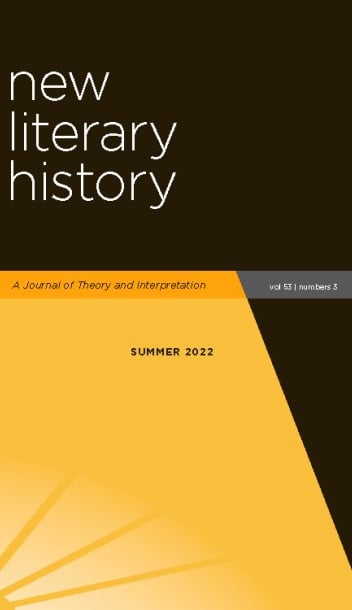

Despite a long list of prominent scholars who have sought to explore the relationship between form and ideology, attempts to develop a political formalism continue to be plagued by far-reaching methodological issues, including excessive reliance on homological reasoning, problematic mechanisms of assigning ideological significance to specific techniques, unresolved relationship between formal and thematic analysis, and implausible claims of literary formalism’s political relevance. In this essay, I introduce the categories of soft formalism, hard formalism, and expansionist formalism in order to analyze both the sources of literary criticism’s attraction to the project of political formalism and the methodological difficulties that make such a project a near impossibility: What do we truly mean when we speak of the politics of form? What do we promise when we imagine a political formalism? What theoretical and rhetorical moves do we perform in an attempt to fulfil that promise? And what do we deliver in the end?
The essay is available through Project MUSE.
New Literary History 53.3 (2022)
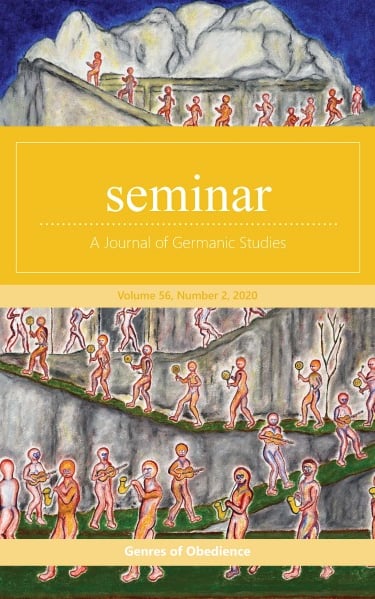

In this article I revisit the complex historical and methodological issues that surround the study of the Bildungsroman both within German literature and in a broader comparative context. I argue that the unusually narrow and well-defined circumstances of the Bildungsroman’s rise in eighteenth-century Germany contributed to the persistence of a normative and often-essentialist understanding of this genre. I further identify the limitations of this understanding, which at once generates a fair amount of critical frustration and hinders the use of Bildungsroman as a comparative term. Focusing in particular on the difficulties associated with tying the Victorian Bildungsroman to the German tradition, I propose an alternative understanding of the Bildungsroman as a genre capable of transcending the context in which it originated and of leaving behind the very notion of Bildung. The genre functions as something like German literature’s disobedient child, one that we persistently attempt, and persistently fail, to discipline. This article suggests that we might wish to abandon this futile disciplinarian practice altogether.
The essay is available through Project MUSE.
The Genre of Disobedience: Is the Bildungsroman Beyond Discipline
Seminar 56.3 (2020)
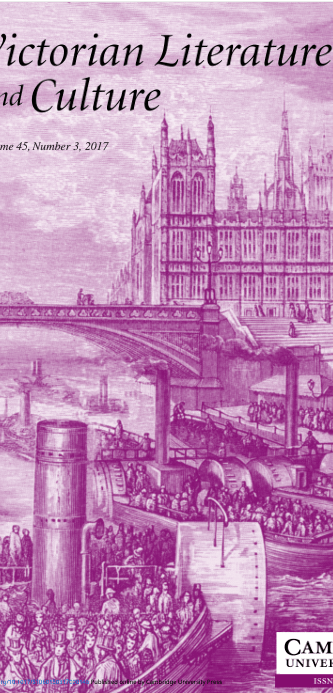

Convenient Cosmopolitanism: Daniel Deronda, Nationalism, and the Critics
In the wake of Amanda Anderson’s influential attempt in The Powers of Distance (2001) to emphasize Daniel Deronda’s cosmopolitan aspects, Eliot’s novel has been hailed as an example of ‘partial cosmopolitanism,’ ‘possessed individualism,’ and even as an instance of the Levinasian ethics of alterity. In a word, from a book embodying the Victorian novel’s encounter with the forces of ethnolinguistic nationalism, Daniel Deronda has become a poster-child of cosmopolitan ethics, scrupulously negotiating the demands of ethnic belonging with a commitment to the ideals of liberal democracy. In this essay I push back against this new cosmopolitan vision of Daniel Deronda by reasserting the significance of the novel’s proto-Zionist agenda and by tracing its roots in the main currents of late nineteenth century nationalism. I reveal the sharp (but apparently forgotten) contrasts between Eliot’s and Mill’s reflections on the role of national identity in the process of state formation. Finally, I offer some much needed theoretical clarity by linking the novel itself and the debates surrounding it to contemporary conceptualizations of nationalism and cosmopolitanism in the work of Martha Nussbaum and Kwame Anthony Appiah.
The article is available through JSTOR as well as through Cambridge Core.
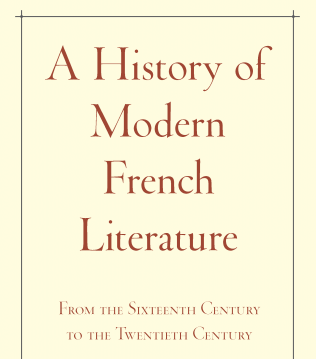

Victorian Literature and Culture 45.3 (2017)
Realism, the Bildungsroman, and the Art of Self-Invention: Stendhal and Balzac
A History of Modern French Literature, ed. Christopher Prendergast (Princeton University Press, 2017)
This chapter explores the transformations of the Bildungsroman in nineteenth-century France. Focusing on the iconic texts of Stendhal and Balzac, I show how the social and political tensions which shaped France in the wake of Napoleonic rule, Restoration, and the Revolution of 1830, complicated the task of self-fashioning.
The book is available from Amazon and my chapter can be accessed directly through JSTOR.
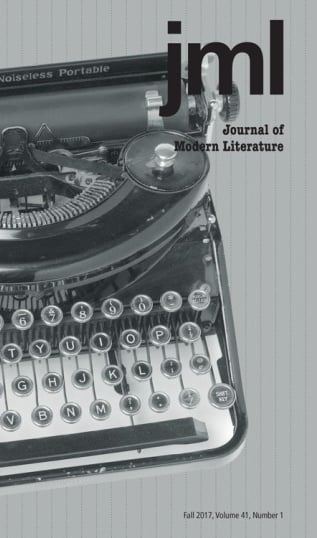

Stephen Dedalus and Nationalism without Nationalism
While contemporary critics have often downplayed the significance of Joyce’s attack on the Gaelic Revival in A Portrait of the Artist as a Young Man, the novel actually enacts nothing less than a systematic repudiation of nationalist tropes from the position of liberal cosmopolitanism. As a detailed comparison of Joyce’s text with the turn-of-the-century revivalist discourse shows, A Portrait undermines each of the key revivalist preoccupations (including both linguistic nationalism and ethnic essentialism), finally deconstructing the project of nation building in toto. This radical critique of nationalism suggests that, after twenty years in which Joyce studies have been dominated by attempts to displace the once-prevalent vision of Joyce as an apolitical and internationalist aesthete with a version of Joyce as, above all, a colonial Irish intellectual, it is time to once again take his commitment to aestheticism and cosmopolitanism seriously.
The article is available through JSTOR.
Journal of Modern Literature 41.1 (2017)
A larger selection of my research is available on my Academia page.
© 2025 Aleksandar Stevic. All rights reserved.